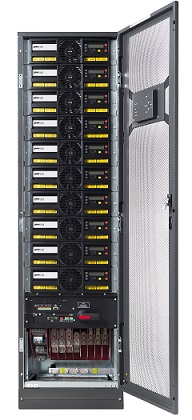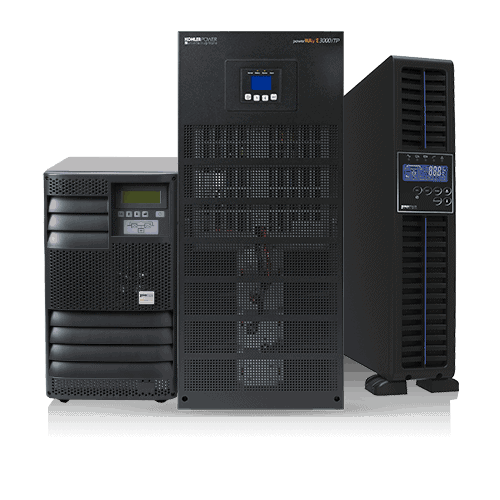Many pharmaceutical manufacturing facilities include products and processes which can be destroyed by contamination. To prevent this, such facilities must invest in cleanrooms where airborne contaminants can be highly controlled. Cleanroom performance is usually assessed against ISO 14644; this comprises a series of standards that quantify airborne particle contamination, and describe the practices and procedures required to manage the risk of contamination in a specific installation.
While many cleanrooms are permanent features of a pharmaceutical facility, more flexible, modular solutions are often desirable. Modular cleanrooms can facilitate a rapid response, for example to increasing production volumes, or for special projects. While ranging in size from a few square metres to hundreds of square metres, all modular installations must be able to withstand the high-volume airflow required for ISO 14644 compliance.
Power considerations
Irrespective of their size, power considerations are always important; there are several reasons why modular cleanrooms will benefit from the clean, uninterrupted power that an uninterruptible power supply (UPS) provides. Positive pressure must be maintained inside modular cleanrooms, so that air will be passed out of the chamber if any leaks occur. Monitoring systems including particle counters for air and gas are essential, and some of the pharmaceutical manufacturing processes running within the cleanroom may depend critically on uninterrupted power.
Agile UPS solutions
However, if modular cleanrooms are by nature flexible environments that can rapidly or frequently change in location, size, equipment population, and power demand, can UPSs be sufficiently agile to meet the challenge?
The answer is that they can be, if a transformerless, modular UPS topology is used. By using a transformerless design, UPS manufacturers like KOHLER Uninterruptible Power (KUP) can provide complete UPS solutions that comprise a tower or frame populated with enough rackmounting modules to support the load. Modules can be incrementally added or removed to accommodate cleanroom load resizing. This facilitates a rapid response to change, without even interrupting the load’s power supply.
KUP’s KOHLER PW 8000DPA, for example, accepts either 10 kW or 20 kW modules in either a Tower version that accepts up to 10 modules for a maximum rating of 200 kW, or a 19” rack version that can provide up to 80 kW with four 20 kW modules. KOHLER PW 8000DPA cabinets can be paralleled horizontally for a maximum capacity of 400 kW.
The KOHLER PW 8000DPA could support a 10 kW load with a single cabinet containing a 10 kW module. A second module could be added for N+1 redundancy, or more for N+2 or N+3 redundancy. Additionally, if the load grows, extra modules can be added just as easily, to provide the required increase in UPS capacity.
The modules use Decentralised Parallel Architecture (DPA), meaning that each module contains all the hardware and software necessary for full system operation. With a minimal number of single points of failure, DPA maximises uptime – and, as the modules can be ‘hot swapped’ with minimal Mean Time to Repair, 99.9999% (‘Six Nines’) availability can be achieved.
While modular ‘right sizing’ minimises initial costs, high operating efficiency reduces operating costs and total cost of ownership; this is further reduced by easy serviceability, near unity input power factor and low input total harmonic distortion (THDi).
The KOHLER PW 8000DPA’s performance is achieved together with a high power density that minimises the footprint required for installation. This is particularly important when supporting modular cleanrooms that must be fitted into limited-size production areas. Problems associated with relocating or resizing a cleanroom are also minimised.
Conclusion
Today’s healthcare environment is changing rapidly, as it faces challenges like downward pressure on pricing and increased competition from new tech start-up entrants. The use of modular cleanrooms affords pharmaceutical manufacturers the agility they need to respond effectively.
The cleanrooms’ agility can be facilitated in turn by that of their UPS systems, provided that these are implemented using modern transformerless modular topology.






